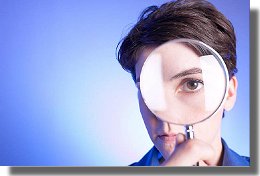 The other day, Claire told me of a woman she knows, whose husband has cancer. Over the past year or so, the two of them have compared notes, sharing how their respective spouses have been doing.
The other day, Claire told me of a woman she knows, whose husband has cancer. Over the past year or so, the two of them have compared notes, sharing how their respective spouses have been doing.Evidently, this man and I have different styles of coping with the disease. Claire describes my style as “researching it to death.” Her friend’s husband is different, a bit less direct. “Tell me what I need to know,” he typically says to his doctor. “The rest I don’t want to hear about.”
I’ve been thinking about Claire’s “researching it to death” description, ever since. It’s true. I’ll admit it: I have responded to the news of my diagnosis and treatment by trying to unearth as much information as I possibly could. Sometimes, to the point of obsession.
 It’s not that I distrust the doctors. I’m not trying to second-guess anyone. At each decision-point in the treatment process, I’ve followed the doctors’ recommendations exactly. On the one occasion when there was a difference of opinion (between Dr. Lerner and Dr. Portlock over the advisability of post-chemo radiation treatments), I stepped back and let the two of them duke it out. Dr. Portlock – an internationally-known lymphoma specialist in a research hospital – had seniority, so her opinion prevailed. It never occurred to me to try to put my finger on the scale, to try to influence the outcome.
It’s not that I distrust the doctors. I’m not trying to second-guess anyone. At each decision-point in the treatment process, I’ve followed the doctors’ recommendations exactly. On the one occasion when there was a difference of opinion (between Dr. Lerner and Dr. Portlock over the advisability of post-chemo radiation treatments), I stepped back and let the two of them duke it out. Dr. Portlock – an internationally-known lymphoma specialist in a research hospital – had seniority, so her opinion prevailed. It never occurred to me to try to put my finger on the scale, to try to influence the outcome.I may have learned some medical jargon along the way, but I’m under no illusion that I’ve achieved the slightest ability to weigh the pros and cons of treatment decisions myself. “Do not try this at home” is a rule that works for me.
Nor do I have much patience with alternative therapies – rumors about the latest vitamin craze, that sort of thing. Yes, cancer is a complex and mysterious disease, but there are also vast amounts of human and material resources being devoted to research. Should I value some whispered product endorsement from some non-medical person, over the results of cancer trials from places like Memorial Sloan-Kettering and the University of Pennsylvania Hospitals? I don’t think so!
But still, I’ll continue to read, to web-surf, to attend conferences, so I may find out all I can about this fast-changing field.
I have a need to know, you see.